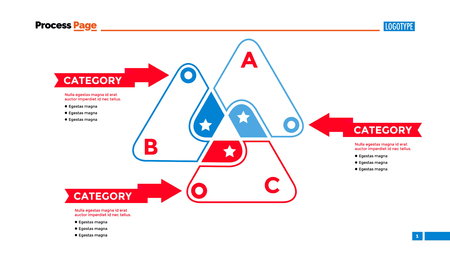Understanding Life Path Number 2
Life Path Number 2 is often associated with harmony, empathy, and the ability to build bridges between people. In numerology, individuals who align with the number 2 are seen as natural diplomats—sensitive to the needs of others and skilled in fostering cooperation. These core traits translate into a unique perspective that values listening, compromise, and partnership over confrontation or competition.
In the American context, these qualities can be both a superpower and a challenge. The U.S. celebrates individualism and assertiveness, but it also thrives on teamwork, community action, and the art of negotiation. People with Life Path Number 2 often find their niche in collaborative environments—whether in grassroots activism, nonprofit organizations, or group-oriented workplaces—where their empathetic approach helps diverse voices feel heard and valued.
Empathy stands out as a defining trait for Life Path 2s. This quality enables them to sense underlying emotions and motivations in social interactions, making them adept at resolving conflicts. Diplomacy is another hallmark; they instinctively seek common ground and can smooth over misunderstandings before they escalate. In American society, where cultural diversity often brings both rich perspectives and potential friction, these skills are invaluable for creating inclusive communities and productive teams.
Cooperation is the glue that ties all these attributes together. Life Path 2s excel when working alongside others toward a shared goal. From local volunteer groups to national advocacy movements, their contributions help nurture unity in an environment where differences can otherwise become dividing lines.
Ultimately, Life Path Number 2 individuals embody the spirit of collaboration that underpins many aspects of American life—showing that empathy and partnership are just as essential to success as ambition and innovation.
Collaboration in the American Workplace
In the United States, corporate culture strongly emphasizes collaboration, teamwork, and effective relationship-building—qualities that naturally align with Life Path Number 2 personalities. The American workplace is often structured around group projects, cross-functional teams, and open communication channels. This environment provides a fertile ground for Number 2 individuals to leverage their diplomatic skills and intuitive understanding of others’ needs.
The Role of Teamwork and Negotiation
Teamwork in American companies goes beyond merely sharing tasks; it involves active engagement, transparent feedback, and consensus-driven decision-making. Life Path Number 2s excel in such settings due to their cooperative nature and sensitivity to group dynamics. Negotiation skills are also highly valued, especially when resolving conflicts or aligning diverse perspectives. Number 2s can use their natural tact and empathy to mediate disagreements and facilitate win-win solutions.
Key Elements of Relationship-Building
| Element | Description | Tips for Number 2 Personalities |
|---|---|---|
| Active Listening | Paying close attention to colleagues’ input | Practice reflective listening; paraphrase what others say to ensure understanding |
| Constructive Feedback | Offering input that helps improve performance without causing offense | Frame feedback positively and focus on solutions rather than problems |
| Networking | Building professional relationships across departments | Attend company events and seek out mentorship opportunities |
Practical Tips for Thriving as a Number 2
- Embrace your peacemaking abilities: Volunteer for roles that require mediation or conflict resolution.
- Cultivate patience: Recognize that building consensus may take time, but your persistence will be appreciated.
- Set personal boundaries: While supporting your team is vital, remember to advocate for your own needs as well.
By understanding these cultural expectations and consciously applying their innate strengths, Life Path Number 2 individuals can become invaluable contributors in the collaborative landscape of the American workplace.

3. Community Engagement and American Values
In the American context, the drive of Life Path Number 2 individuals toward community and harmony finds a strong resonance with core national values such as volunteerism, activism, and social connectedness. The United States has long celebrated grassroots efforts and the power of collective action, qualities that are deeply embedded in the character of a Number 2. Whether it’s participating in local charity events, organizing neighborhood support groups, or advocating for social justice, those with this life path naturally gravitate toward roles that foster unity and cooperation.
The Spirit of Volunteerism
Volunteerism is a cornerstone of American civic life, and Life Path Number 2s often thrive in environments where service to others is valued. Their innate desire to help and uplift aligns perfectly with the American tradition of giving back—whether through soup kitchens, disaster relief efforts, or mentorship programs. This synergy allows Number 2s to create meaningful connections while contributing to the greater good.
Activism and Collaboration
Activism is another area where Life Path Number 2’s collaborative strengths shine. In movements for equality, environmental protection, or community rights, Number 2s often serve as mediators, consensus-builders, or behind-the-scenes organizers who ensure everyone’s voice is heard. Their diplomatic approach helps bridge divides and build coalitions—key components for any successful American advocacy effort.
Social Connectedness in Everyday Life
Beyond organized initiatives, Number 2s also excel at nurturing social bonds in everyday interactions. From fostering inclusive workplaces to creating welcoming neighborhoods, their empathetic nature supports the American ideal of “E Pluribus Unum”—out of many, one. Their ability to see common ground and encourage cooperation makes them invaluable contributors to America’s diverse tapestry of communities.
4. Navigating Diversity and Social Dynamics
The United States is a tapestry of identities, shaped by waves of immigration, indigenous heritage, and evolving social values. For Life Path Number 2 individuals, whose natural talents lie in diplomacy, empathy, and peacemaking, the American context provides both unique challenges and profound opportunities. In a society that celebrates diversity yet often grapples with division, Number 2s are uniquely positioned to promote inclusivity and understanding across ethnic, religious, and social groups.
The Role of Inclusivity in American Culture
Inclusivity is more than just a buzzword in the United States; it’s foundational to the nation’s ideals. From the civil rights movement to contemporary conversations about equity and representation, Americans have continually re-examined what it means to belong. Life Path Number 2s embody the spirit of cooperation that underpins these cultural shifts. Their ability to listen without judgment and foster environments where everyone’s voice matters aligns perfectly with ongoing efforts for greater unity.
How Number 2s Bridge Divides
| Challenge | Number 2 Approach | Impact |
|---|---|---|
| Ethnic Tensions | Mediating dialogues between groups; highlighting common goals | Reduces misunderstandings; builds trust |
| Religious Differences | Facilitating interfaith collaborations; respecting diverse beliefs | Cultivates mutual respect; fosters shared community projects |
| Social Inequality | Advocating for marginalized voices; encouraging equitable policies | Promotes fairness; strengthens social cohesion |
The Subtle Power of Listening and Empathy
In American workplaces, schools, and neighborhoods, the ability to truly listen is rare—and valuable. Life Path Number 2s excel at picking up on unspoken cues and validating others’ feelings. This skill not only helps resolve conflicts but also creates spaces where diverse perspectives can flourish. By modeling inclusive behavior—whether by inviting quieter colleagues into discussions or bridging generational gaps—Number 2s become catalysts for positive change.
Ultimately, as America continues its journey toward a more inclusive future, Life Path Number 2s are vital connectors. Their commitment to collaboration enables them to navigate complexity with grace, weaving stronger communities out of difference rather than despite it.
5. Challenges and Growth Opportunities
While Life Path Number 2s excel in collaboration and nurturing community, they often encounter unique obstacles on their journey—especially within the context of American culture, which tends to prize assertiveness and individualism. One of the most common challenges for 2s is conflict avoidance. Many Number 2s are natural peacekeepers, preferring to maintain harmony rather than confront disagreements directly. In a society that values open debate and self-advocacy, this tendency can sometimes be misunderstood as passivity or indecisiveness.
Another frequent hurdle is people-pleasing. The desire to make others happy and avoid letting anyone down can lead 2s to overextend themselves or suppress their own needs. In the fast-paced, achievement-oriented environment typical of American workplaces and social circles, this can result in burnout or feelings of being undervalued. It’s not uncommon for 2s to find themselves saying “yes” too often, putting their well-being at risk in an effort to support friends, family, or colleagues.
Turning Challenges Into Growth
Recognizing these patterns is the first step toward personal development. For Life Path Number 2s, learning to embrace healthy boundaries is essential. Setting limits does not mean abandoning compassion; rather, it allows you to serve your community more sustainably. Practicing assertive communication—expressing your needs while respecting others—can help you gain respect without sacrificing your core strengths of empathy and diplomacy.
Strategies for Navigating the American Context
In the U.S., where directness and self-promotion are often rewarded, 2s can benefit from intentionally developing skills in self-advocacy. This might look like speaking up in meetings, negotiating for fair treatment, or taking credit for collaborative achievements. At the same time, leveraging your innate ability to listen and mediate can position you as a valued team player or leader who brings out the best in others.
Embracing Your Unique Role
Ultimately, personal growth for Life Path Number 2s in America means finding balance between caring for others and honoring yourself. By working through tendencies toward conflict avoidance and people-pleasing, you can transform these potential pitfalls into sources of strength—becoming a bridge-builder who thrives both individually and within the wider community.
6. Success Stories and Role Models
Notable Americans Who Embody Life Path Number 2 Traits
Throughout American history, several influential figures have exemplified the qualities of Life Path Number 2—collaboration, diplomacy, empathy, and a deep sense of community. These individuals have left a lasting mark on society not by seeking the spotlight for themselves, but by fostering unity and cooperation in diverse fields. Their stories serve as both inspiration and practical examples for those who resonate with the Number 2 life path.
Eleanor Roosevelt: The Compassionate Diplomat
Eleanor Roosevelt stands as a quintessential role model for Life Path Number 2. As First Lady, she championed human rights, built coalitions across political divides, and advocated tirelessly for marginalized communities. Her approach to leadership was rooted in listening, mediation, and bringing people together—hallmarks of the Number 2 energy. Eleanor’s legacy demonstrates how empathy and collaboration can influence national policy and global change.
Fred Rogers: Building Community Through Kindness
Fred Rogers, beloved host of “Mister Rogers’ Neighborhood,” is another powerful example. His gentle presence and unwavering commitment to kindness taught generations of Americans about understanding, patience, and emotional intelligence. Rogers used his platform to nurture a sense of belonging and acceptance—core values for Life Path Number 2 individuals seeking to create harmonious environments wherever they go.
Practical Lessons from Their Journeys
The successes of Roosevelt and Rogers offer valuable lessons for anyone on the Life Path Number 2. Both leaders found strength in humility and saw power in uniting people rather than dividing them. Their lives illustrate that making an impact doesn’t always require bold confrontation; sometimes, it’s the quiet work behind the scenes—facilitating dialogue, supporting others’ growth, or advocating gently for change—that brings about meaningful progress.
Inspiration for Modern-Day Collaborators
If you find yourself identifying with Life Path Number 2 traits, let these American icons remind you that your strengths matter deeply in today’s world. Whether you’re building bridges in your local community or working within a team at your job, your ability to listen, empathize, and collaborate can be a powerful catalyst for positive transformation. Embrace your path as a connector—you are helping to shape a more inclusive and compassionate America.

